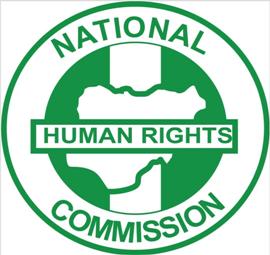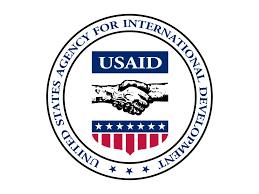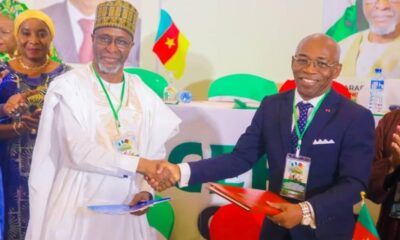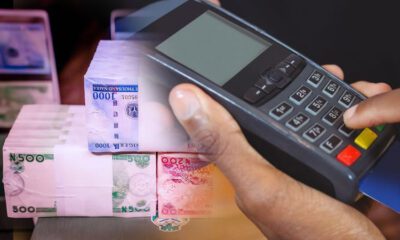Editorial
Sanitising Nigeria’s Foreign Missions from flu of financial recklessness
Narratives of indiscriminate mismanagement of public funds have been one characteristic of governance in the space of Nigeria’s public sector, which over the years has put on a garment of gross inordinateness. The deficiencies have clustered as sediments to form part of the system.
Recently, cases of unremitted funds on the part of revenue generating agencies have been exposed, as attention began to gather around the disclosure of depths of financial recklessness tracked by audit reports on the activities of Ministeries, Departments and Agencies (MDAs), particularly those of the Federal Government. Profligate and inordinate spending without the sense restrain have been known to be a character of MDAs in the Country. The prevailing culture of wastage on unjustifiable expenditures has over the years accumulated to leave the Country with debilitated fabrics as socio-economic realities now pose reflections of fatigue with troubles of destabilising forces.
The deficient disposition of ridiculously wild culture of profligacy and mismanagement in Nigeria’s public sector has elaborately clustered to portray nothing but bad governance system, under the shade of which growth and development have become facades.
Now that the troubles of dwindling revenue challenge is frowning against the Country, particularly as sustainability of the running cost of government becomes shaky, it has dawned on the Country that only a change of behaviour would salvage the Country from the ebb it is set for, headlong.
Strengthening the institutional system of Nigeria’s public sector is pertinent to expunge and sanitise it from the grip of deficiencies which have made the space an open ground for gross mismanagement and its strings of unjustifiable and inordinate spending.
As cases recently have reflected the depth of wild mismanagement and corrupt incidence of non remittance of public funds, amidst shrinking revenue dearth, it has become necessary that the fight to expunge the system from these pestilence must be taken with firm pragmatic approach.
Recently, the Office of the Auditor-General for the Federation, in its report presented to the National Assembly, alleged various financial infractions by Nigeria’s Foreign Missions between 2010 and 2019. The infractions revealed failure to remit Internally Generated Revenue as well as gross impunity of financial recklessness. It is disgusting such corruption is taking place while cries of paucity of funds by the embassies and high commissions have kept on reverberating.
The Auditor-General in the report decried that efforts to audit the accounts of some of the Missions were frustrated by officials who acted on a directive by the Permanent Secretary of Ministry of Foreign Affairs. The Auditor-General, in the over 450-page document containing a list of audit queries against the missions, raised alarm over their habit of spending with impunity outside their budgets and that without the approval of the National Assembly.
“The practice where Nigerian Missions over expended their allocations with impunity should be frowned at. It should be noted that this action is a contravention of Financial Regulation which stipulates that no expenditure on any subhead of the recurrent estimates in excess of the provision in the approved estimates or supplementary estimates may be authorised by any officer controlling a vote without the prior approval of the National Assembly. I am deeply worried at the non-adherence to budgetary provisions by most Missions. It is important to note that this act contravenes the provision of extant regulations which stipulates that no expenditure on any subhead of the recurrent estimates in excess of the provision in the approved estimates or supplementary estimates may be authorised by any officer controlling a vote without the prior approval of the National Assembly. It should also be noted that this practice makes nonsense of the appropriation. I have observed that most of the Nigerian Missions have formed the habit of over expending their allocations with impunity. This practice makes nonsense the essence of appropriation and should be frowned at.
“I have noted with dismay that most Nigerian Missions incur expenses on most of their expenditure sub-heads in excess of the provision in the approved estimates. It should be noted that this contravenes the provisions of Financial Regulation 313 (2009 Edition) which stipulates that no expenditure on any sub-head of the Recurrent estimates in excess of the provision in the approved estimates or supplementary estimates may be authorised by any officer controlling a vote without approval of the National Assembly,” the Auditor-General had decried.
According to the report, while the landed property of the Nigerian Embassy in Brasilia were in a dilapidated condition without any effort to renovate them, the embassy had been spending $50,247.89 annually on rent for two of its officials, noting that amount spent on rent for three years could have been used to renovate the buildings and cut cost. The report also revealed that the embassy exchanged six old vehicles, whose prices were not made available, for two new ones purchased at a total cost of $95,211, while an additional $17,642.08 was spent on shipment, insurance and clearing of the new vehicles, even when there was no budgetary provision for the acquisition.
Another query alleged that in 2010, the then Nigerian Ambassador to Poland claimed over N9.777million annually for non-existing domestic staff. According to the report, even though the ambassador’s letter of deployment noted engagement of a cook/steward, a maid and gardener who should be engaged locally and enrolled on the payroll of the mission, they were never employed.
Another query alleged that in 2011, the Nigerian Ambassador to France spent over N1.75m on entertainment of guests without any record of the guests, haircuts, manicure, hair colouring and cost of ticket to Nigeria for consultation without any evidence of any official invitation/approval for the journey. The Auditor-General described these as “very private expenses that should not have been borne by public funds.”
The report further revealed that officials of the Nigeria Embassy in Paris were printing official receipts booklets for the collection of government revenue privately, contrary to Financial Regulations which stipulated that “under no circumstances shall temporary or privately printed receipts be utilised for the collection of government revenue.” According to the office, the practice encouraged fraudulent activities, making it difficult to track the receipts issued out and thus difficult to determine the actual revenue generated.
It was revealed in another query that at the Embassy of Nigeria, Washington D.C., USA, properties owned by the Federal Government of Nigeria were sold and the proceeds of the sales used to open a ‘Property Account.’ A scrutiny of the bank statements of the main account revealed that several transfers of funds amounting to USD17,477,677.54 (N2,619,949,997.79) were made at different times between 28th August, 2009 and 26th April, 2012, from the ‘Property Account’ to the main account. Despite these huge transfers, the main account had only a meagre balance of the sum of USD769.49 (N115,348.58) as at 16th May, 2012.
The ugly narratives have placed demands on the House of Representatives’ Committee on Public Accounts to commence investigation of extra-budgetary spending by the Foreign Missions and their refusal to remit Internally Generated Revenue. Such indiscriminate act of financial recklessness with grooves of impunity is a blight on the system of governance in the Country. The need to inquire into the corrupt incidence is pertinent with thorough investigations to bring the wrong to justice.
Importantly, it has become pertinent for the National Assembly to work concertedly with the relevant executive bodies, including the Presidency, to develop framework of accountability mechanisms that would firmly foreclose the reign of such impunity of gross mismanagement within the framework of Nigeria’s Foreign Missions. More elaborately, such drive should be extended beyond the shore of the Foreign Missions to the entire working orientation of Nigeria’s public sector system. This is pertinent to sanitise the system from the prevailing flu of financial recklessness and the blight of inordinate character of mismanagement.
Editorial
Epileptic national grid in Nigeria: The way forward


It is now commonplace to hear about the collapse of the national grid in Nigeria. In short, the news is now a periodic ritual. And for a country like Nigeria with all its potentials to be galloping with power in the name of national grid collapse is to say the least pathetic. Countries within our neighborhood we often refer to as smaller nations have since left us behind in terms of steady power supply.
Records have it that Nigeria has recorded about 140 national grid collapses since 2013 when the National Electricity Power Authority (NEPA) was unbundled and still counting. In first quarter of 2024 alone, Nigeria has recorded two national grid collapses, one on 4/2/2024 and the other on 28/3/2024. One may now ask,what is the real problem? The country generates 4,000MW of electricity for a population of approximately 200m people. This is a far cry! What do we think 4,000MW will do for such a gargantuan population? Only God will save us!
According to reports, the Federal Government is targeting about 30,000MW in 2030. But experts say Nigeria needs about 33,000MW of electricity supply with its current population to be comfortable. Until that is achieved, it remains a dream. Now that power has been put into the concurrent list, states should wake up and embark on power generation projects to fill the existing gap created by the big brother, the Federal Government. It is not enough for states and local governments to continue to cry wolf when actually they can do something about the problem.
What are the effects of frequent national grid collapse? When there is a power outage, companies and organisations must provide their outfits with alternative power supply. That is, diesel or petrol. This will automatically increase the cost of production. Private companies with little or no stamina to absorb the extra cost will close shop and the economy will be impacted negatively on. Workforce will be reduced or entirely laid off. Unemployment will creep in with its attendant factors of restiveness, social vices, and outright insurgency.
The country will start grappling with insecurity and its allies. Money that would have been spent on developmental projects will now be channelled to security, just as we have now. Lack of power equally brings about lack of social amenities, such as lack of potable water, healthcare services and poor infrastructures.In a situation like this, investors will take flight and the economy will collapse. We pray that our situation in the country does not get to this stage, because that will amount to a socio-economic crisis that no nation longs to experience.
What is the way out? The reason is that wishes and prayers are not economic strategies. The remedy of course is within our reach. The operators of the power sector often complain of gas supply challenges. The question is who is holding the gas from being supplied? Are there rough curves that should be smoothened in the contractual agreements? Who is responsible for tidying up such spots? It is a matter of putting the round peg in a round hole and the results will be natural.
There must also be commitment, patriotism on the part of the supervising agencies. Enough political will must be generated to drive these processes. This, of course, boils down to good leadership. And we strongly believe that the Renewed Hope Agenda of the President Ahmed Bola Tinubu-led Federal government is out to provide that. So there is nothing stopping us from achieving any goal we set for ourselves.
Another cause of national grid collapse is poor transmission. Others are poor infrastructures, vandalism, and liquidity crisis. These problems are not insurmountable. All hands must therefore be on deck to achieve this.
Editorial
Rising human rights violations in Nigeria: Urgent calls for Govt action


The latest findings unveiled by the National Human Rights Commission (NHRC) during its monthly dashboard meeting paint a concerning picture of human rights violations in Nigeria, specifically in March 2024.
The alarming figure of 1,580 recorded violations across the nation’s six geopolitical zones is a stark reminder of the challenges faced in upholding fundamental rights.
Of particular concern is the North Central region, which emerged as the hotspot for violations, reporting 468 cases. This revelation underscores the urgent need for targeted interventions and heightened awareness in this area to curb such abuses.
Equally troubling is the revelation that State Actors, including the police, military, and Department of State Service (DSS), were implicated in 94 violations. Among these were distressing incidents such as the killings of security personnel in Delta State, highlighting the gravity of the situation.
The breakdown provided by the NHRC reveals disturbing trends, with 542 cases involving violations of children’s rights and 471 cases of domestic violence, signaling a worrying trend that demands immediate attention and action.
Furthermore, the involvement of non-state and private actors in 32 and 36 violations respectively underscores the need for a comprehensive approach to address human rights abuses across all sectors of society.
It is also disheartening to note that three cases of rights violations were recorded against disabled individuals, emphasising the importance of ensuring the protection and inclusion of all members of society.
Beyond these specific categories, the NHRC’s report also sheds light on violations impacting social, economic, and cultural rights, with 157 cases identified. Additionally, the 24 referred cases highlight the complexities involved in addressing such violations and the importance of collaboration among relevant stakeholders.
In light of these findings, it is imperative that concerted efforts are made to address the root causes of human rights violations and to implement measures aimed at safeguarding the rights and dignity of all individuals in Nigeria. Only through collective action can meaningful progress be achieved in building a society. In a solemn address at the heart of Nigeria’s capital, Abuja, the Senior Human Rights Adviser, Hilary Ogbonna, delivered a sobering message. He revealed that a grim tally of 499 lives were lost to violence and abduction, with an additional 71 souls stripped of their fundamental right to life during the reviewed period.
Ogbonna’s words echoed with the chilling reality of 301 schoolchildren vanishing into the night’s grip in Kaduna State alone. Meanwhile, the silent screams of 40 souls extinguished in Benue State, and four lives cruelly cut short in Nasarawa State during the distribution of much-needed palliatives, reverberated through the nation’s consciousness.
These violations, ranging from killings to kidnappings, domestic violence to abductions, and the vulnerable children’s rights trampled upon, cast a shadow over the fabric of society.
As the ink of these harrowing accounts dries on the pages of our collective history, our hearts are heavy with dismay. The sanctity of life, enshrined in the Universal Declaration of Human Rights, is under siege in myriad forms, exposing the fragility of peace within our borders.
The sobering revelation that Nigeria languishes among the least peaceful nations on the Global Peace Index further punctuates the urgency of the matter. Despite over two decades of democratic governance and the noble ideals of the UDHR, our nation grapples with the weight of human rights abuses, laid bare for the world to witness.
At its core, the Universal Declaration of Human Rights beckons humanity to embrace freedom from oppression, active participation in decision-making, and the assurance of basic necessities. Yet, these foundational principles remain elusive for many, casting a long shadow over the promise of a just society.
As we confront these challenges head-on, let us not forget the indomitable spirit of resilience that resides within our people.
Together, let us forge a path towards a future where every life is cherished, and every right is upheld with unwavering resolve. Since its declaration, it has become fashionable for most countries of the world, Nigeria inclusive, to entrench the catalogue of rights in their constitutions.
But, regrettably, in Nigeria, and indeed Africa, people are usually subjected to physical and mental torture ranging from cases of accidental discharge and other forms of police brutality, domestic violence, kidnappings as well as detention without trial.
There is no gainsaying it that insecurity has continued to manifest in virtually all parts of the country in the form of banditry, kidnapping, terrorism and communal conflicts, resulting in the loss of lives and property.
We are not unaware that violations of rights that guarantee personal freedom are further worsened by the apparent lack of remedies for the victims, whether in the form of compensation or access to justice for the wrong done. With increasing cases of human rights abuses, citizens’ trust in the Nigerian system has continued to dwindle, making it difficult for victims to come forward and seek justice.
The Nigerian Constitution guarantees the right to personal liberty which implies that human rights are the fundamental features of any true democratic setting. While we recognise the efforts made by nations towards safeguarding these freedoms, it is equally essential to acknowledge the persistent obstacles that hinder their full realisation.
Some of these obstacles may arise from legislative constraints, societal prejudices, or systemic shortcomings. Whatever is the case, justice demands that collective attention and concerted efforts be made to dismantle them.
We feel compelled to highlight the multitude of obstacles facing our nation, ranging from insecurity and separatist tensions to egregious acts such as torture, illegal detention, extortion, and extrajudicial killings perpetrated by law enforcement agencies.
Additionally, the pervasive challenges of limited access to justice, manipulation of the court system, and the alarming disregard for court orders compound the hardships faced by citizens. Coupled with the escalating cost of living and deteriorating living conditions, these factors undermine the ability of individuals to lead secure and fulfilling lives.
It is crucial to emphasise the pivotal role that safeguarding human rights plays in nurturing vibrant democracies, fostering social cohesion, and celebrating diversity.
Editorial
EFCC and the war against Naira abuse


The war against Naira abuse by the Economic and Financial Crime commission (EFCC) seems selective but it is a good omen and stakeholders must rise to support the anti-corruption agency in its task. A few weeks ago two popular celebrities Bobrisky and the Chief Priest of Cubana were brought to book for spraying money in public events against the laws regarding it.
The six months sentence slammed on controversial cross-dresser, Idris Okuneye popularly known as Bobrisky, and the ongoing prosecution of socialite, Pascal Okechukwu, also known as Obi Cubana, clearly demonstrates the seriousness with which the Economic and Financial Crimes Commission (EFCC) is willing to prosecute the war on naira abuse.
A Federal High Court sentenced Bobrisky to six months jail without an option of fine. Also, a Federal High Court sitting in Lagos granted Obi Cubana N10 million bail after he pleaded not guilty to charges of naira abuse. EFCC’s decision to begin the war with these socialites is plausible and that will send a strong signal to their ilk.
Arguably, the naira is one of the most abused currencies in the world as it is very common to see Nigerians, especially the well-to-do, spraying this legal tender with reckless abandon at social events. This is a clear contravention of the Central Bank of Nigeria (CBN’s) Act which frowns at the abuse of the country’s legal tender.
Section 21(3) of the Central Bank of Nigeria Act 2007 (as amended) explicitly provides for penalties for those caught abusing the naira. Specifically, the law stipulates that “spraying of, dancing or matching on the Naira or any note issued by the Bank during social occasions or otherwise howsoever shall constitute an abuse and defacing of the Naira or such note and shall be punishable under the law by fines or imprisonment or both.”
The law also prohibits hawking of the country’s legal tender when it provides in Section 21(4) that, “It shall also be an offence punishable under Sub-section (1) of this section for any person to hawk, sell or otherwise trade in the Naira notes, coins or any other note issued by the Bank.”
However, in spite of this copious provisions, Nigerians still indulge in outright abuse of the naira by spraying the banknotes at events, tearing and writing on the banknotes, and selling the banknotes among other clear instances of abuse including selling and mutilation.
As should be expected, these practices have continued to make a mess of the CBNs Clean Notes Policy which was implemented with the aim of enhancing the visual appeal and durability of the banknotes in circulation.
From 2007 when the Act was enacted to date, there have been no deliberate efforts to punish those who indulge in sheer abuse of the naira in contravention of the law. As a matter of fact, until recently, most Nigerians were unaware of the law.
It is clear that the respective authorities have finally woken from their slumber and are set to go after unpatriotic Nigerians who have turned naira abuse into a hobby. Beginning with the so-called socialites who are the worst culprits as far as abusing the naira is concerned, the government appears bent on ending this menace.
We applaud the Economic and Financial Crimes Commission (EFCC) and other relevant agencies of the government for this all-out war and urge them to sustain the tempo. Nigerians who have made it a habit to disrespect the naira by either spraying it with reckless abandon at social functions such as birthdays, weddings and funerals, or selling it at the roadside, must be made to face the full wrath of the law.
While the EFCC’s prosecution of Bobrisky is commendable, the agency must ensure that it sees to its logical end the ongoing prosecution of Obi Cubana. For this renewed war to make a meaningful impact, there must be no sacred cow. All those guilty of this abuse, regardless of their social standing, should be brought to book.
The EFCC and other agencies must resist the temptation to indulge in preferential treatment especially as one class of persons who are guilty of naira abuse is the political class. The political elites see spraying the naira at social gatherings as a status symbol. Even though it is a long held one, the culture of spraying money during celebrations is a national embarrassment that must be confronted using all the available legal instruments. There has to be an end to this sheer act of flamboyance and extravagance which is counterproductive.
In addition, while we commend the EFCC for its effort to protect the integrity of the national currency, we are persuaded to appeal to the government to apply the same zeal in ensuring that Nigerians, so hard pressed, have the Naira in their pockets in the first place.
-
Finance3 months ago
Court orders Sen. Victor Umeh to repay N136m bank debt to AMCON
-



 Abuja Update2 months ago
Abuja Update2 months agoUNDP, FG partnership needed to achieve inclusion, equity- Minister
-
Abuja Update1 month ago
Banks drive stock market performance with N147bn gain
-



 Infotech4 weeks ago
Infotech4 weeks agoWorld Backup Day: NITDA urges Nigerians to ensure backup of data
-
capital market2 years ago
Rt.briscoe, FBNH, Others halts negative performance of stock market
-



 Health3 weeks ago
Health3 weeks agoImmunisation: FG, GAVI seek synergy with Sokoto Govt.
-



 Health1 week ago
Health1 week agoCapacity training will reduce migration of health workers- NPHCDA
-
Infotech2 weeks ago
Forex for Beginners: Unveiling the currency exchange and how to trade it
















